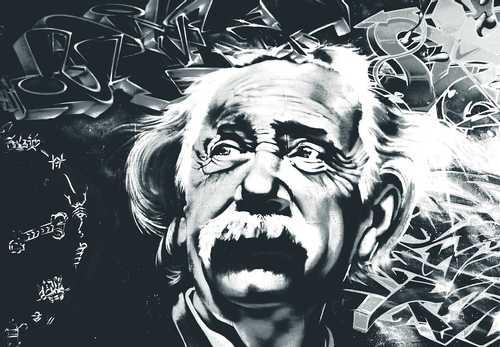What Makes a Genius?
Curated from: nationalgeographic.com
Ideas, facts & insights covering these topics:
8 ideas
·98.6K reads
492
6
Explore the World's Best Ideas
Join today and uncover 100+ curated journeys from 50+ topics. Unlock access to our mobile app with extensive features.
The genius
Genius is too elusive and too subjective to be easily identified. It requires too many traits to be simplified.
However, we can try to understand it by looking at intelligence, creativity, perseverance, and good fortune that interlinks to create a genius capable of changing the world.
2.09K
22.5K reads
Intelligence as a yardstick
Lewis Terman, who helped pioneer the IQ test, tracked over 1,500 Californian schoolkids with IQs above 140, which is the near-genius or genius mark.
40 after the study began, the researchers noted that a number of the study's participants struggled to thrive, despite their high IQ scores. Others tested for the study that did not have a high enough IQ, grew up to become renowned in their fields.
1.87K
14.5K reads
Creativity and genius
Creativity is a part of genius that can't really be measured, but that can be explained to a certain extent. One sign of creativity is being able to make connections between seemingly different concepts.
The 'aha moment' that arises at unexpected times, like in a dream or the shower, often emerges after a period of contemplation. Information comes in consciously, but the problem is managed subconsciously, resulting in a solution when the mind least expects it.
2.17K
12.4K reads
The creative process
It relies on the dynamic interplay of neural networks that work together.
It draws from both the right and left hemispheres of the brain, especially regions in the prefrontal cortex.
1.81K
11.3K reads
Genetics and genius
Geniuses are rare, numbering roughly one in a million. Genetic potential alone does not predict actual accomplishments.
Advances in genetic research now make it possible to examine human traits. But Intelligence is very complex, and thousands of genes may be involved - each one with a slight effect.
1.74K
9.92K reads
The need for a nurturing environment
Social and cultural influences can provide that nourishment, creating a cluster of genius at moments and places in history, like Kolkata during the Bengal Renaissance, or Silicon Valley today.
The hungry mind can also find the intellectual stimulation it needs at home, where an environment can be created in which to flourish.
1.81K
8.76K reads
Motivation and tenacity
Natural gifts and a nurturing environment can still fail to produce a genius, without motivation and determination to press one forward.
Psychologist Angela Duckworth believes that a combination of passion and perseverance, or grit, drives people to achieve. Big hits emerge after many attempts. Regardless of how brilliant a person is, endurance and discipline are critical to success.
2.04K
8.87K reads
Genius needs support
Genius cannot be singled out and cultured and nurtured without support.
- People born in poverty or oppression don't get a chance at working toward anything other than to survive.
- Mozart’s older sister for example, Maria Anna, a brilliant harpsichordist, had her career cut short by her father when she reached the marriageable age of 18.
1.84K
10.1K reads
IDEAS CURATED BY
Olivia Lambert's ideas are part of this journey:
Learn more about personaldevelopment with this collection
How to beat procrastination
How to enhance your creative thinking
How to create a smooth transition in a new endeavor
Related collections
Similar ideas
10 ideas
While We Sleep, Our Mind Goes on an Amazing Journey
nationalgeographic.com
6 ideas
Five myths about genius
washingtonpost.com
10 ideas
Read & Learn
20x Faster
without
deepstash
with
deepstash
with
deepstash
Personalized microlearning
—
100+ Learning Journeys
—
Access to 200,000+ ideas
—
Access to the mobile app
—
Unlimited idea saving
—
—
Unlimited history
—
—
Unlimited listening to ideas
—
—
Downloading & offline access
—
—
Supercharge your mind with one idea per day
Enter your email and spend 1 minute every day to learn something new.
I agree to receive email updates



